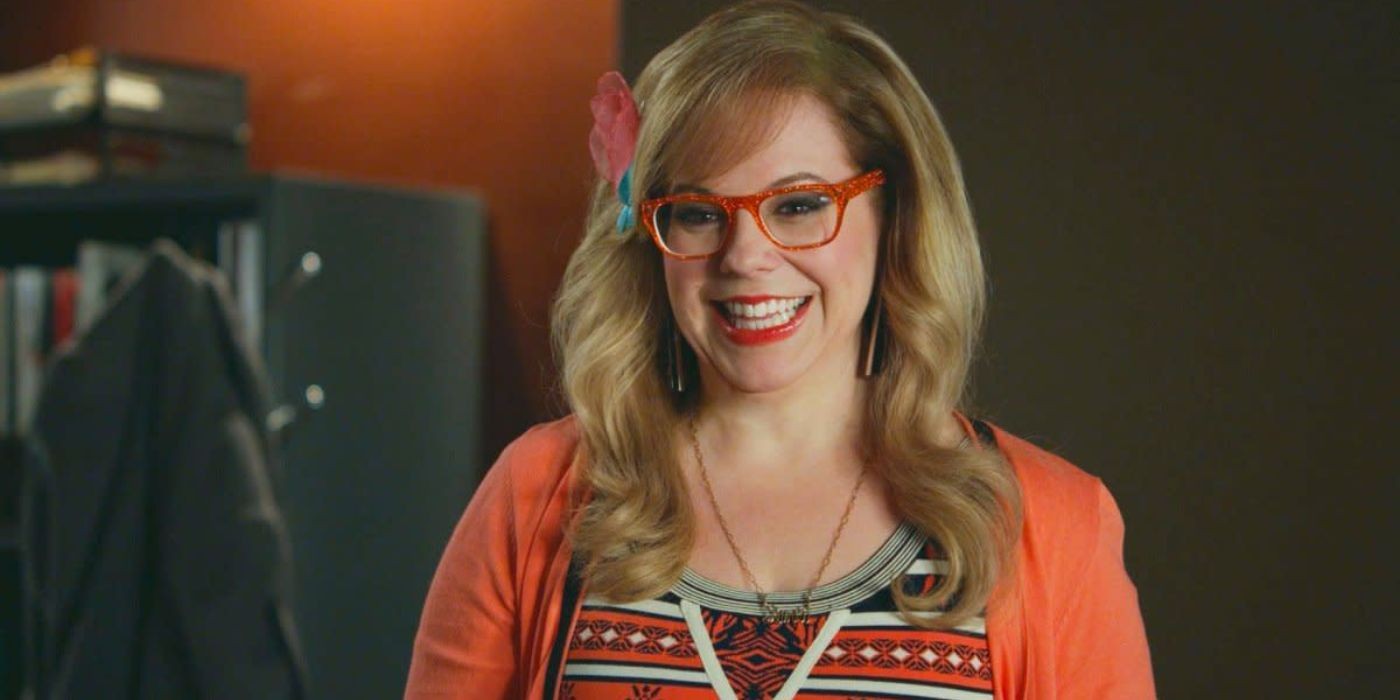Penelope Garcia’s departure from Criminal Minds left many fans wondering about her motivations; understanding her exit involves exploring her character arc and the emotional toll of her work. At WHY.EDU.VN, we delve into the reasons behind Garcia’s choice, examining her journey from hacker to indispensable BAU member, her burnout, and her eventual return, providing insights into the narrative and character development, exploring psychological aspects, and shedding light on the importance of self-care, ultimately addressing emotional intelligence. Let’s explore the full story including supporting characters and plot developments.
1. Penelope Garcia’s Initial Reluctance and Eventual Acceptance of the BAU
Penelope Garcia’s journey with the Behavioral Analysis Unit (BAU) began unconventionally. Unlike her colleagues, who consciously chose a career in law enforcement, Garcia’s involvement stemmed from her past as a skilled hacker. The FBI apprehended her for her “Black Queen” persona activities, offering her a choice between imprisonment and utilizing her skills for their benefit.
Initially hesitant, Garcia opted to work for the FBI, leveraging her expertise to assist in criminal investigations. While the nature of her work exposed her to disturbing crime details, she gradually acclimated, becoming an invaluable asset to the team.
1.1. Garcia’s Unique Role within the BAU
Garcia’s role within the BAU extended beyond technical expertise. She served as a vital link, connecting seemingly unrelated pieces of information and providing crucial insights to aid in profiling serial killers. Her ability to navigate complex databases and uncover hidden connections made her indispensable to the team’s success.
1.2. The Emotional Toll of the Job
Despite her professional competence, Garcia remained sensitive to the darker aspects of her work. Unlike some of her colleagues, she wasn’t immune to the emotional toll of dealing with gruesome crime scenes and disturbed individuals. To cope, she cultivated a vibrant personal style, surrounding herself with bright colors and uplifting elements to counteract the negativity she encountered daily.
1.3. Hints of Discontent
Throughout her tenure at the FBI, subtle hints suggested Garcia’s underlying desire for a different path. Her initial reluctance to join the BAU, coupled with her sensitivity to the violence and depravity she encountered, indicated a yearning for a more fulfilling and less emotionally taxing existence.
2. Factors Influencing Garcia’s Decision to Leave
Several factors contributed to Penelope Garcia’s decision to leave the BAU at the end of Criminal Minds.
2.1. The Non-Profit Opportunity
Garcia’s departure coincided with a job offer from a non-profit organization. This opportunity presented her with a chance to utilize her skills in a less stressful environment while still making a positive impact on society. The prospect of helping others without being constantly exposed to violence and trauma appealed to her deeply.
2.2. Showrunner and Writer Intentions
Kirsten Vangsness, Garcia’s actor, co-wrote the season finale with showrunner Erica Messer, both agreeing that it was fitting for Garcia to leave.
2.3. The Audience Perspective
Vangsness explained that Garcia represented the eyes of the audience, the empath who reacted to the show’s disturbing elements. Her exit was a way to show that the work of fighting crime continues, and it allowed the audience to step away, knowing the good guys are still out there helping.
2.4. Personal Growth and Self-Awareness
A pivotal moment in Garcia’s decision-making process occurred during a conversation with Diana in the hospital. Reflecting on the times they had been injured, Garcia realized the emotional cost of her work and the need to prioritize her well-being. She recognized that she couldn’t sustain the constant emotional drain indefinitely and needed a break to replenish herself.
2.5. Seeking a Chance to Choose Her Own Destiny
For Garcia, leaving the FBI represented an opportunity to take control of her life and choose her own destiny. Unlike her initial entry into the bureau, which was based on circumstances rather than personal choice, this decision empowered her to pursue a path that aligned with her values and aspirations.
3. The Significance of Garcia’s Departure
Garcia’s departure held significant implications for both the character and the narrative of Criminal Minds.
3.1. Character Development and Closure
Her exit provided closure to her character arc, allowing her to evolve beyond the confines of her role at the FBI. It demonstrated her growth as an individual and her ability to prioritize her emotional well-being.
3.2. Exploring Themes of Burnout and Self-Care
Garcia’s departure shed light on the importance of self-care and boundaries, particularly in high-stress professions. It highlighted the potential for burnout and the need for individuals to prioritize their mental and emotional health.
3.3. Acknowledging the Emotional Toll on Viewers
By having Garcia, the character who most closely represented the audience’s perspective, leave the show, the writers acknowledged the emotional toll that the series could take on viewers. It served as a reminder that even in the face of darkness, there is hope and the possibility of finding peace and fulfillment.
3.4. Leaving a Void in the Team Dynamic
Garcia’s departure left a void in the BAU team dynamic. Her unique skills and personality were irreplaceable, and her absence was keenly felt by her colleagues. It underscored the importance of her role in gluing the team together and maintaining morale.
4. The Inevitable Return in “Criminal Minds: Evolution”
Despite her departure, Penelope Garcia’s connection to the BAU remained strong, leading to her eventual return in Criminal Minds: Evolution.
4.1. The Unbreakable Bond with the Team
The team recognized that Garcia’s skills and insights were essential to their success. They needed her to function effectively, highlighting the depth of their reliance on her expertise.
4.2. A Case That Pulled Her Back In
Garcia’s return was prompted by a compelling case involving the abduction of a teenage girl. Agent Luke Alvez sought her assistance, knowing that her unique abilities could make a difference in the investigation.
4.3. Establishing Boundaries and Self-Care Practices
Upon her return, Garcia was committed to maintaining a healthy balance in her life. She prioritized self-care and established boundaries to prevent burnout, ensuring that she could contribute to the team without sacrificing her well-being.
4.4. Recognizing the Importance of Her Work
Despite her initial reservations, Garcia realized that she missed working with the team and making a difference in the lives of others. She recognized that her skills were valuable and that she could play a vital role in bringing justice to victims and their families.
4.5. Embracing Her Role in the FBI
Ultimately, Garcia embraced her role in the FBI, recognizing that it was where she needed to be. She found fulfillment in her work and satisfaction in knowing that she was making a positive impact on the world.
5. Lessons Learned from Garcia’s Journey
Penelope Garcia’s journey throughout Criminal Minds offers valuable lessons about personal growth, self-care, and the importance of finding purpose in one’s work.
5.1. Prioritizing Emotional Well-being
Garcia’s decision to leave the BAU underscores the importance of prioritizing emotional well-being, especially in high-stress professions. It reminds us that it’s okay to take a break and focus on self-care when needed.
5.2. Establishing Boundaries
Her return in Criminal Minds: Evolution highlights the significance of establishing boundaries to prevent burnout and maintain a healthy balance in life. It demonstrates that it’s possible to contribute to meaningful work without sacrificing one’s well-being.
5.3. Finding Purpose and Fulfillment
Garcia’s journey reminds us that finding purpose and fulfillment in our work is essential for overall happiness and satisfaction. It encourages us to seek out opportunities that align with our values and allow us to make a positive impact on the world.
5.4. Embracing Change and Growth
Garcia’s willingness to embrace change and grow as an individual is inspiring. It demonstrates that it’s possible to evolve beyond our past experiences and create a future that aligns with our aspirations.
5.5. The Power of Human Connection
Garcia’s deep connection with her colleagues in the BAU underscores the power of human connection and the importance of having supportive relationships in our lives. It reminds us that we are not alone in our struggles and that we can rely on others for support and encouragement.
6. Diving Deeper: Key Moments and Episodes Highlighting Garcia’s Struggles
To further understand Garcia’s decision to leave, let’s analyze specific episodes and moments that showcase her emotional struggles and eventual realization of the need for change.
| Episode | Description | Significance |
|---|---|---|
| Season 1, Various Episodes | In the early seasons, Garcia’s reactions to crime scenes are more pronounced than her colleagues, showing her initial discomfort. | Establishes Garcia as the character most relatable to the audience, highlighting the disturbing nature of the cases. |
| Season 8, “The Replicator” | Garcia is directly targeted by a serial killer, putting her life in danger. | Emphasizes the personal risk Garcia faces in her job, adding to the emotional toll. |
| Season 9, “Demons” | Garcia struggles emotionally after accidentally shooting a suspect. | Shows the psychological impact of violence, even when justified, on Garcia’s sensitive nature. |
| Season 15, “Face Off” (Series Finale) | Garcia accepts a job at a non-profit, marking her departure from the BAU. | Culmination of Garcia’s arc, showcasing her decision to prioritize her well-being and seek a less stressful environment. |
| Criminal Minds: Evolution, Various | Garcia returns to the BAU but establishes clear boundaries, emphasizing self-care. | Demonstrates Garcia’s growth and her commitment to maintaining a healthy balance between her work and personal life. |
| Conversation with Diana | Her conversation with Diana in the hospital made Garcia realized the emotional cost of her work and the need to prioritize her well-being. | It helped Garcia realize that she couldn’t sustain the constant emotional drain indefinitely and needed a break to replenish herself. |



7. Academic and Psychological Perspectives on Burnout and Career Change
Garcia’s experience resonates with broader academic and psychological research on burnout, career change, and the impact of high-stress environments.
7.1. Burnout Syndrome
Psychologists define burnout as a state of emotional, physical, and mental exhaustion caused by prolonged or excessive stress. It is characterized by feelings of energy depletion or exhaustion, increased mental distance from one’s job, and reduced professional efficacy. Studies have shown that individuals in high-stress occupations, such as law enforcement and healthcare, are particularly vulnerable to burnout.
7.2. The Importance of Self-Care
Research consistently emphasizes the importance of self-care practices in mitigating burnout and promoting overall well-being. Self-care encompasses activities that individuals engage in to reduce stress, improve their mood, and enhance their physical and mental health. Examples include exercise, mindfulness meditation, spending time with loved ones, and pursuing hobbies.
7.3. Career Change as a Coping Mechanism
For some individuals, career change may be a necessary coping mechanism for addressing burnout and improving their quality of life. Leaving a high-stress job can provide an opportunity to pursue more fulfilling and less demanding work, allowing individuals to regain a sense of control and purpose.
7.4. The Role of Social Support
Social support plays a critical role in buffering the effects of stress and promoting resilience. Having strong social connections and supportive relationships can provide individuals with a sense of belonging, validation, and encouragement, which can help them cope with challenges and navigate difficult transitions.
8. Garcia’s Impact on the Show and Its Viewers
Penelope Garcia’s character brought a unique perspective to Criminal Minds, offering a blend of technical expertise, emotional vulnerability, and unwavering optimism. Her presence not only enhanced the show’s narrative but also resonated deeply with viewers.
8.1. Representation of Empathy and Compassion
Garcia’s empathy and compassion provided a counterpoint to the often-grim realities of the cases the BAU investigated. Her ability to connect with victims and their families on a personal level added a layer of humanity to the show, reminding viewers of the importance of empathy in the face of tragedy.
8.2. Promoting Diversity and Inclusion
As a quirky, tech-savvy woman working in a male-dominated field, Garcia challenged stereotypes and promoted diversity and inclusion. Her character demonstrated that there is room for different types of personalities and skill sets in law enforcement.
8.3. A Source of Comic Relief
Garcia’s humor and wit provided much-needed comic relief in the midst of intense and disturbing storylines. Her lighthearted banter with her colleagues helped to lighten the mood and create moments of levity.
8.4. Encouraging Self-Acceptance
Garcia’s embrace of her own unique style and personality encouraged viewers to embrace their own individuality and be true to themselves. Her character showed that it’s okay to be different and that our quirks and eccentricities are what make us special.
9. Addressing Common Fan Questions About Garcia’s Departure
Over the years, fans have raised several questions about Garcia’s departure and return. Let’s address some of the most common inquiries.
Q1: Was Garcia’s departure planned from the beginning?
A: No, Garcia’s departure was not initially planned. It evolved organically as the show progressed and the writers recognized the need to address the emotional toll of her work.
Q2: Did Kirsten Vangsness want to leave the show permanently?
A: No, Kirsten Vangsness did not want to leave the show permanently. She co-wrote the series finale and supported the decision to have Garcia leave, but she was open to returning in future iterations.
Q3: Why did Garcia return in Criminal Minds: Evolution?
A: Garcia returned because the writers felt that her skills and expertise were essential to the team’s success. Additionally, the opportunity to explore her character’s growth and her commitment to self-care was compelling.
Q4: Did Garcia regret leaving the BAU?
A: Garcia did not regret leaving the BAU, as it allowed her to prioritize her well-being and gain a new perspective on her life. However, she missed working with her colleagues and making a difference in the world, which ultimately led to her return.
Q5: How did Garcia balance her work and personal life after returning?
A: Garcia established clear boundaries and prioritized self-care practices, such as exercise, meditation, and spending time with loved ones. She also learned to say no to অতিরিক্ত requests and delegate tasks when necessary.
10. Conclusion: The Enduring Legacy of Penelope Garcia
Penelope Garcia’s journey throughout Criminal Minds is a testament to the importance of personal growth, self-care, and finding purpose in one’s work. Her decision to leave the BAU, while initially surprising to fans, ultimately allowed her to evolve as an individual and prioritize her emotional well-being. Her eventual return in Criminal Minds: Evolution demonstrated her commitment to both her work and her own self-care.
Garcia’s character left an indelible mark on the show and its viewers, promoting empathy, compassion, diversity, and self-acceptance. Her story serves as a reminder that it’s okay to prioritize our own well-being and that we can create a life that aligns with our values and aspirations.
Do you have more questions about Penelope Garcia’s journey or other aspects of Criminal Minds? Visit WHY.EDU.VN, where our experts are ready to provide detailed answers and insights. You can reach us at 101 Curiosity Lane, Answer Town, CA 90210, United States, or contact us via Whatsapp at +1 (213) 555-0101. Let why.edu.vn be your guide in exploring the fascinating world of knowledge!
FAQ: Penelope Garcia’s Departure from Criminal Minds
| Question | Answer |
|---|---|
| Why did Penelope Garcia initially join the FBI? | Garcia joined the FBI as an alternative to serving jail time for her hacking activities. |
| What was Garcia’s role in the Behavioral Analysis Unit? | Garcia was the BAU’s technical analyst, providing crucial information and connecting seemingly unrelated data points to help the team solve cases. |
| What prompted Garcia to leave the BAU in Season 15? | Garcia left the BAU to take a job at a non-profit organization, seeking a less stressful environment and a chance to help others without constant exposure to violence. |
| How did the showrunners explain Garcia’s departure? | The showrunners explained that Garcia’s departure represented the audience’s perspective, acknowledging the emotional toll of the show and providing a sense of closure. |
| What led to Garcia’s return in Criminal Minds: Evolution? | Garcia returned to the BAU because the team needed her skills, and she missed working with her colleagues. She also recognized that she could make a difference in the lives of others. |
| How did Garcia change after returning to the BAU? | Garcia prioritized self-care and established boundaries to prevent burnout. She was more assertive and took better care of her emotional well-being. |
| What impact did Garcia have on the show’s viewers? | Garcia’s character resonated with viewers due to her empathy, compassion, and unique personality. She promoted diversity, inclusion, and self-acceptance. |
| How did Garcia’s departure affect the team dynamic? | Garcia’s departure left a void in the team dynamic, as her skills and personality were irreplaceable. Her absence highlighted the importance of her role in gluing the team together. |
| Did Garcia regret leaving the BAU? | While Garcia did not regret leaving the BAU initially, she missed the work and the team, which ultimately led to her return. |
| What lessons can be learned from Garcia’s journey? | Garcia’s journey teaches us the importance of prioritizing emotional well-being, establishing boundaries, finding purpose in our work, and embracing change and growth. |

